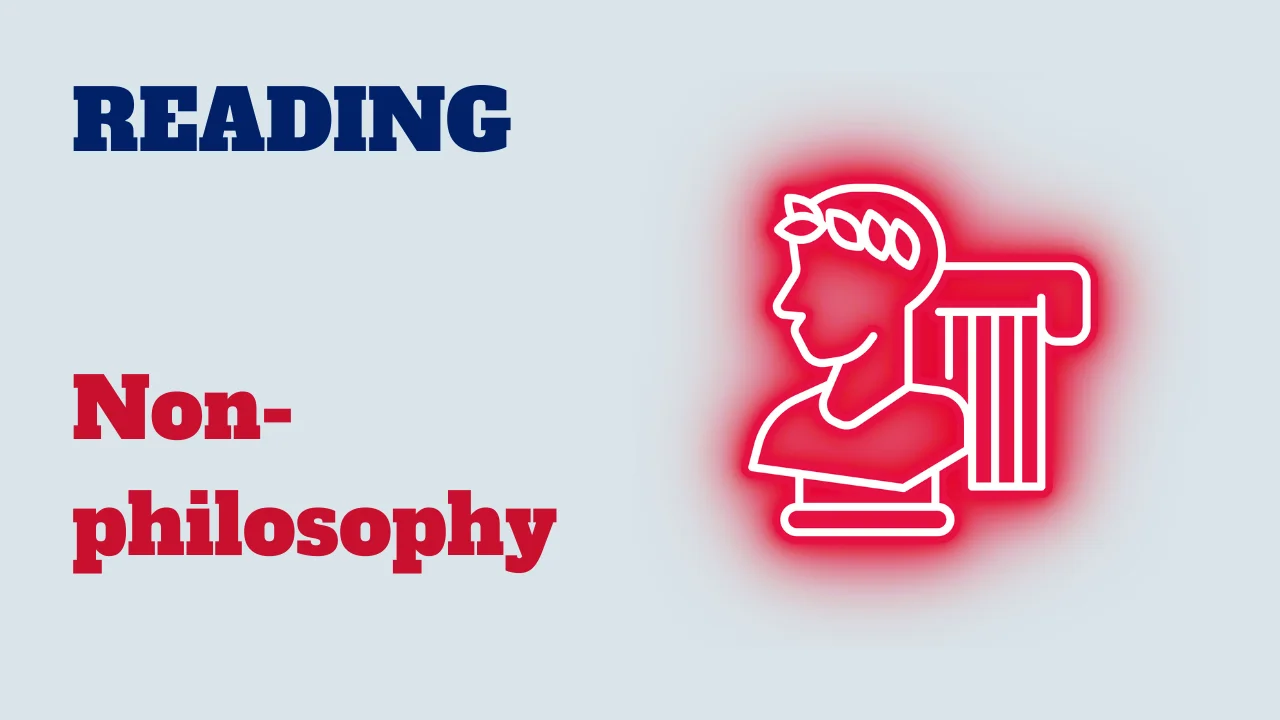Welcome to an exploration of the concept of non-philosophy as elucidated by French philosopher François Laruelle! In this reading activity, we’ll delve into Laruelle’s innovative ideas on the nature of philosophy, its limitations, and the role of non-philosophy in understanding philosophical structures.

From its precursors to Laruelle’s own insights, non-philosophy challenges traditional philosophical frameworks, offering a unique perspective on the nature of thought and inquiry.
Text: Non-philosophy
Non-philosophy, a term coined by the French thinker François Laruelle, represents a radical departure from traditional philosophical methodologies and aims to offer a new way of thinking about and engaging with philosophical concepts. Laruelle’s approach challenges the fundamental assumptions of philosophy, suggesting that philosophy often imposes a hierarchical structure on knowledge and thought, which limits its potential for genuine understanding.
At the heart of non-philosophy is the concept of “the One,” a foundational principle that is not accessible through traditional philosophical inquiry. The One represents a form of radical immanence, an absolute reality that exists beyond the dualities and distinctions typically imposed by philosophical systems. Non-philosophy seeks to think from the perspective of the One, bypassing the usual philosophical frameworks and structures.
One of the key techniques in non-philosophy is “non-standard philosophy,” which involves a practice of “cloning” philosophical concepts rather than adhering to their original contexts and meanings. This cloning process allows for the concepts to be used in new and creative ways, free from the constraints of their traditional philosophical underpinnings. By doing so, non-philosophy opens up new avenues for thought and exploration, enabling a more flexible and inclusive approach to knowledge.
Non-philosophy also emphasizes the idea of “radical passivity,” which contrasts sharply with the active, constructive nature of traditional philosophical methods. This passivity is not about inaction but about receptivity and openness to the real without imposing preexisting structures or interpretations. It involves a form of thinking that is more about listening and responding to the real rather than actively shaping it.
The implications of non-philosophy extend beyond academic philosophy, influencing fields such as politics, science, and art. By challenging the dominant paradigms and encouraging new ways of thinking, non-philosophy provides a powerful tool for critically engaging with various forms of knowledge and practice.
In conclusion, non-philosophy offers a transformative approach to understanding and engaging with the world, promoting a form of thought that is radically inclusive, flexible, and open to the real. By moving beyond the constraints of traditional philosophy, it opens up new possibilities for knowledge and creative expression.
Comprehension questions
Congratulations on completing the exploration of non-philosophy and François Laruelle’s groundbreaking ideas! Through this activity, we’ve gained insight into the revolutionary concepts challenging traditional philosophical frameworks. Laruelle’s non-philosophy offers a fresh perspective on the nature of thought, inquiry, and the limitations of philosophical systems. Thank you for engaging in this exploration, and remember to continue questioning and critically examining philosophical paradigms as we navigate the complexities of human thought and understanding.



